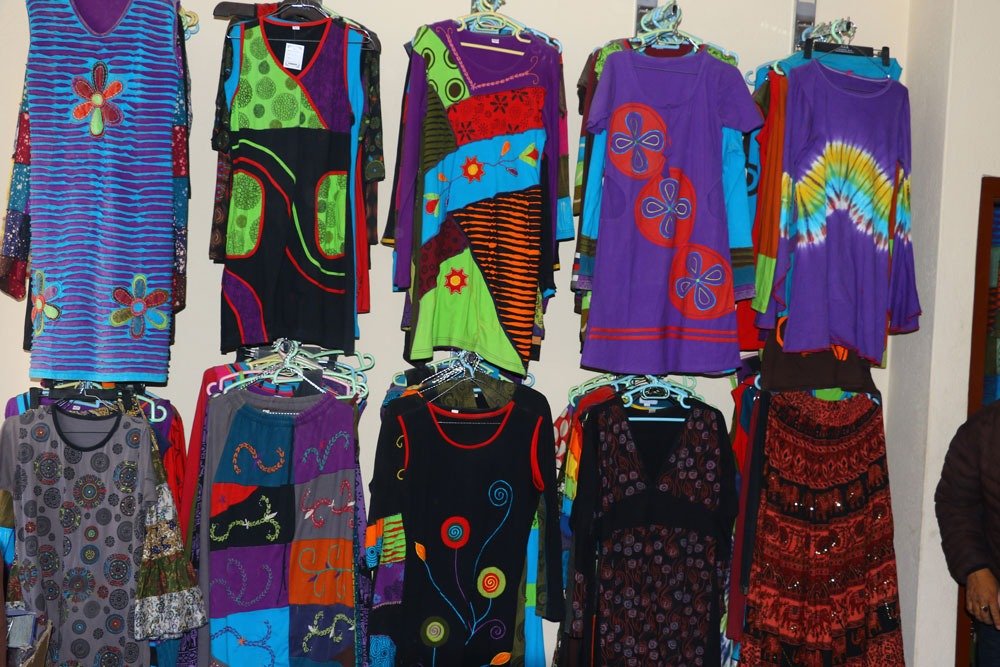Nepal, a nation cradled by the majestic Himalayas, is more than just a destination for adventure tourism. It’s a vibrant hub of craftsmanship, culture, and unique products that are gaining global recognition. From the intricate patterns of handcrafted textiles to the soothing vibrations of singing bowls, the Nepal wholesale products market offers a treasure trove for global retailers and businesses seeking authenticity, quality, and a story behind every item. This article delves into the dynamic landscape of Nepal’s wholesale sector, highlighting its key products, market advantages, and the considerations for businesses looking to source from this Himalayan nation.
Table of Contents
The Artisan’s Legacy: A Tapestry of Nepalese Products
The heart of Nepal’s wholesale market lies in its rich heritage of traditional arts and crafts. Centuries of skill passed down through generations have created a distinct catalog of products that are both beautiful and culturally significant.
1. Handicrafts and Textiles: This is arguably Nepal’s most well-known export category. The craftsmanship is evident in a wide range of products, including:
- Pashmina: Often referred to as “soft gold,” authentic Nepali pashmina is made from the fine undercoat of the Himalayan mountain goat. It is renowned for its exceptional softness, warmth, and lightness, making pashmina shawls, stoles, and scarves highly sought-after luxury items worldwide.
- Hand-knotted Woolen Carpets: The Nepali carpet industry is a major pillar of the economy. These carpets are celebrated for their unique texture, durability, and intricate designs, often incorporating Tibetan and traditional Nepali motifs. The use of high-quality wool and skilled labor results in a premium product with a loyal international market.
- Felted Products: Felt, one of the oldest materials for handicrafts, is transformed into a whimsical array of products in Nepal. From decorative felt balls and ornaments to cozy slippers, bags, and home decor, felted wool items are popular for their unique texture and vibrant colors.
- Handmade Lokta Paper: Derived from the bark of the Lokta bush, this eco-friendly and durable paper has been a part of Nepali culture for centuries. It is used to create notebooks, lampshades, greeting cards, and other stationery, appealing to a market that values sustainable and natural products.
- Hemp and Nettle Products: Reflecting a growing global interest in sustainable materials, Nepali artisans are creating a range of textiles from wild hemp and nettle fibers. These products, including bags, clothing, and accessories, are valued for their strength, natural feel, and eco-friendly origins.
2. Spiritual and Ritual Items: Nepal’s deep-rooted Buddhist and Hindu traditions have given rise to a significant market for spiritual artifacts.
- Singing Bowls: These are a prime example of Nepal’s unique offerings. Used for meditation, healing, and sound therapy, authentic singing bowls are handcrafted from a blend of metals and produce a deep, resonant sound. They are a popular item for wholesalers catering to the wellness and spiritual markets.
- Statues and Sculptures: Artisans create magnificent statues of Buddhist deities like Buddha and Tara, and Hindu gods like Shiva and Ganesh, in a variety of materials including brass, copper, and stone. These are not merely decorative items but objects of devotion and art.
- Thangka Paintings: These traditional Tibetan Buddhist paintings are intricate works of art that depict deities, mandalas, and spiritual narratives. Each Thangka is a labor of love, a testament to the artist’s patience and skill.
- Prayer Flags and Wheels: These items are iconic symbols of the Himalayas. Wholesale suppliers offer a variety of prayer flags, prayer wheels, and other ritualistic items that are popular with both spiritual practitioners and those who appreciate their aesthetic and cultural value.
3. Natural and Agricultural Products: Nepal’s diverse geography, from the tropical lowlands to the high Himalayas, provides a wide variety of agricultural products with unique properties.
- Spices and Herbs: Large cardamom, ginger, and Timur pepper (a unique Szechuan-like pepper) are just a few of the spices that find a growing export market. The high-altitude, pristine environment of the Himalayan foothills lends a distinct flavor and aroma to these products.
- Tea and Coffee: Nepali tea, particularly from the Ilam region, is gaining a reputation as a high-quality alternative to Darjeeling tea. Similarly, organic coffee grown in the hilly regions is known for its smooth, rich flavor.
- Medicinal Herbs and Essential Oils: The Himalayan region is a biodiversity hotspot for medicinal and aromatic plants. These are processed into herbal products and essential oils, which are highly valued in the global wellness and aromatherapy industries.
The Wholesale Advantage: Why Source from Nepal?
For international buyers, the “Nepal wholesale products” market presents several compelling advantages:
- Authentic and Handcrafted Quality: Many Nepali products are not mass-produced. They are handcrafted by skilled artisans, ensuring each item has a unique character and superior quality. This authenticity is a powerful selling point in a market saturated with generic goods.
- Competitive Pricing: Compared to many Western countries, the production costs in Nepal are relatively low. This allows for attractive wholesale prices and healthy profit margins for retailers.
- Ethical and Sustainable Sourcing: Many Nepali wholesalers operate on a “fair trade” model, providing fair wages and safe working conditions for their artisans. Sourcing from such companies allows businesses to align with consumer demand for ethical and sustainable products.
- Cultural and Social Impact: By purchasing wholesale from Nepal, businesses directly contribute to the livelihoods of local communities and help preserve traditional art forms that might otherwise be at risk. This narrative of social responsibility adds significant value to the products.
Navigating the Market: A Guide for Wholesale Buyers
Entering the Nepali wholesale market requires a thoughtful approach to ensure a smooth and successful partnership.
1. Finding Reliable Suppliers:
- Online Platforms: Specialized B2B platforms and websites of individual Nepali exporters are the easiest starting point. Look for detailed product catalogs, clear contact information, and client testimonials.
- Trade Fairs and Exhibitions: Attending international trade fairs with a focus on handicrafts, textiles, or natural products can provide a direct opportunity to meet suppliers, inspect product quality, and establish personal connections.
- Local Representatives and Agents: For larger orders or complex product sourcing, using a local agent or intermediary can be invaluable. They can help with communication, quality control, and navigating local business practices.
2. Key Considerations for Wholesale Orders:
- Minimum Order Quantities (MOQs): Be prepared for MOQs, which can vary significantly depending on the product. For handcrafted items, MOQs may be smaller than for industrial goods.
- Payment and Shipping: Discuss payment terms upfront. Most international transactions will involve a deposit and final payment upon shipment. Clarify shipping methods—air cargo for high-value items and sea freight for bulk goods are common.
- Quality Control: It is crucial to have a clear understanding of quality expectations. Requesting samples before placing a large order is a non-negotiable step. For major orders, consider using a third-party inspection service to verify quality before shipment.
- Customization and Branding: Many Nepali wholesalers are flexible and willing to accommodate custom designs or private labeling. This allows businesses to create unique product lines that stand out in the market.
Conclusion
The Nepal wholesale products market is a dynamic and expanding sector with immense potential. It offers a unique value proposition that goes beyond simple commerce, blending rich cultural heritage with ethical production and genuine craftsmanship. For businesses and retailers seeking authentic, high-quality, and socially responsible goods, Nepal stands as a compelling source. By understanding the landscape of its products and navigating the market with a strategic approach, global buyers can forge partnerships that are not only profitable but also contribute to a sustainable and culturally vibrant future for this extraordinary Himalayan nation.




